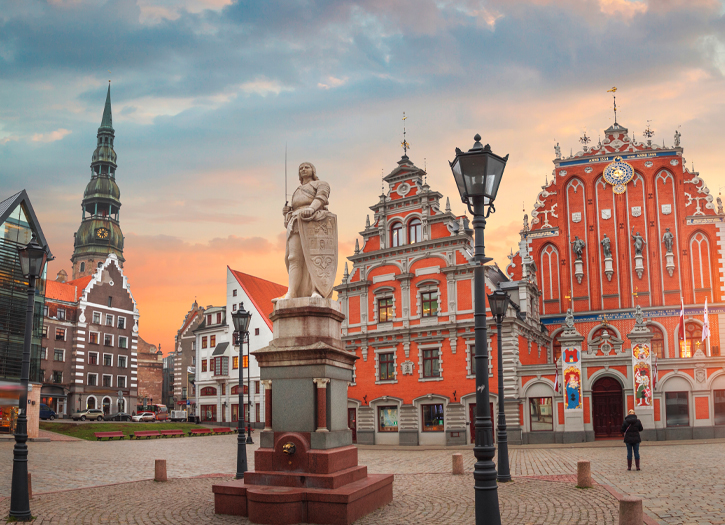The COVID-19 pandemic was confirmed to have reached Latvia on 2 March 2020.On 13 March, the government closed all educational institutions and banned mass gatherings until 14 April, which was later extended to 12 May. Many concerts and events were cancelled and moved to other dates. As of 20 March at least 1,600 culture and entertainment events had been disrupted.
On 3 February, a Latvian citizen living in Wuhan was evacuated with a French government plane and taken to Paris, where she was quarantined for 14 days before being allowed to depart to Riga.On 11 February, Latvia donated protective clothing, masks, respirators and other epidemic prevention and control supplies to China. On 2 March, the Latvian Ministry of Health confirmed the first case of COVID-19 in Latvia.
On 8 March, the Latvian Centre for Disease Prevention and Control confirmed that a second patient in Latvia had tested positive for COVID-19, and had since been taken to the Infectious Disease Centre of the Riga Eastern Clinical University Hospital. As reported, Latvia’s second COVID-19 case was a woman who had returned from a skiing resort in Cervinia on a Milan-Riga flight on Saturday, 7 March. By that date, Latvian authorities had tested 222 people.
On 13 March, the government announced a billion euro support for businesses affected by coronavirus provided as “financial instruments” (such as tax holidays or sick leave pay) via the state-owned ALTUM development bank. Minister of Finance Jānis Reirs stated that Latvia was in a good financial position compared to the 2008 financial crisis. Minister of Agriculture Kaspars Gerhards explained that no food shortages were expected and that internal food production could more than satisfy the population’s need.
A list of emergency measures took effect on 14 March.On 14 March, Kariņš announced that starting 17 March international travel would be halted, however, this would not affect private travel within the European Union, returning citizens or flow of goods. Furthermore, organised public events are banned and other gatherings may not exceed 50 participants.On 16 March, the Latvian State Police carried out 376 checks and recorded 14 instances of COVID-19 emergency measure violations.
On 25 March, 24 additional cases of COVID-19 were confirmed, raising the total to 221. Among them was a NATO soldier serving in Latvia. Centre for Disease Prevention and Control Infectious Disease Risk Analysis and Prevention Department director Jurijs Perevoščikovs also reported the first COVID-19 patients with no clear epidemiological links to any other infection cases or trips abroad, pointing to the start of COVID-19 transmission within the Latvian society. 25 March was also the day when the National Library of Latvia opened up online access to their newspaper and magazine archive until 14 April. On 29 March, the government adopted a number of stricter regulations. Foremost, all persons must maintain a 2-meter distance and observe epidemiological safety measures in private and public events, as well as during public indoor and outdoor activities.
New restrictions also prohibit all private arrangements (except funerals), public events, meetings, processions, pickets, indoor sports and religious activities. Trading and public catering venues are still allowed to hold more persons while maintaining the 2-meter distance and observing safety measures. Various other are also adopted. On 7 May, The Cabinet of Ministers extended the state of emergency until 9 June, but eased some of the restrictions. Notably, starting 12 May, outdoor and up to 3-hour indoor gatherings of up to 25 people would be allowed while observing the two-metre distancing and providing disinfectants. A mouth and nose cover would be required in public transport. Travel and tourism would also be allowed within the three Baltic states.By May 22, travel from EU was reopened.
In October, the infection rates increased 11-fold from September.Use of face covers became mandatory in public transport on October 7,and other public places on October 14, along with other restrictions.Dumpis urged to prioritize social distancing over masks.Rural areas saw reusable mask deficit. By October 19, Latvia saw a record number of confirmed cases, and restriction on gatherings and remote study were further tightened by October 24.On October 29, fines were introduced for not wearing a face cover in public places.







Add Comment
You must be logged in to post a comment.